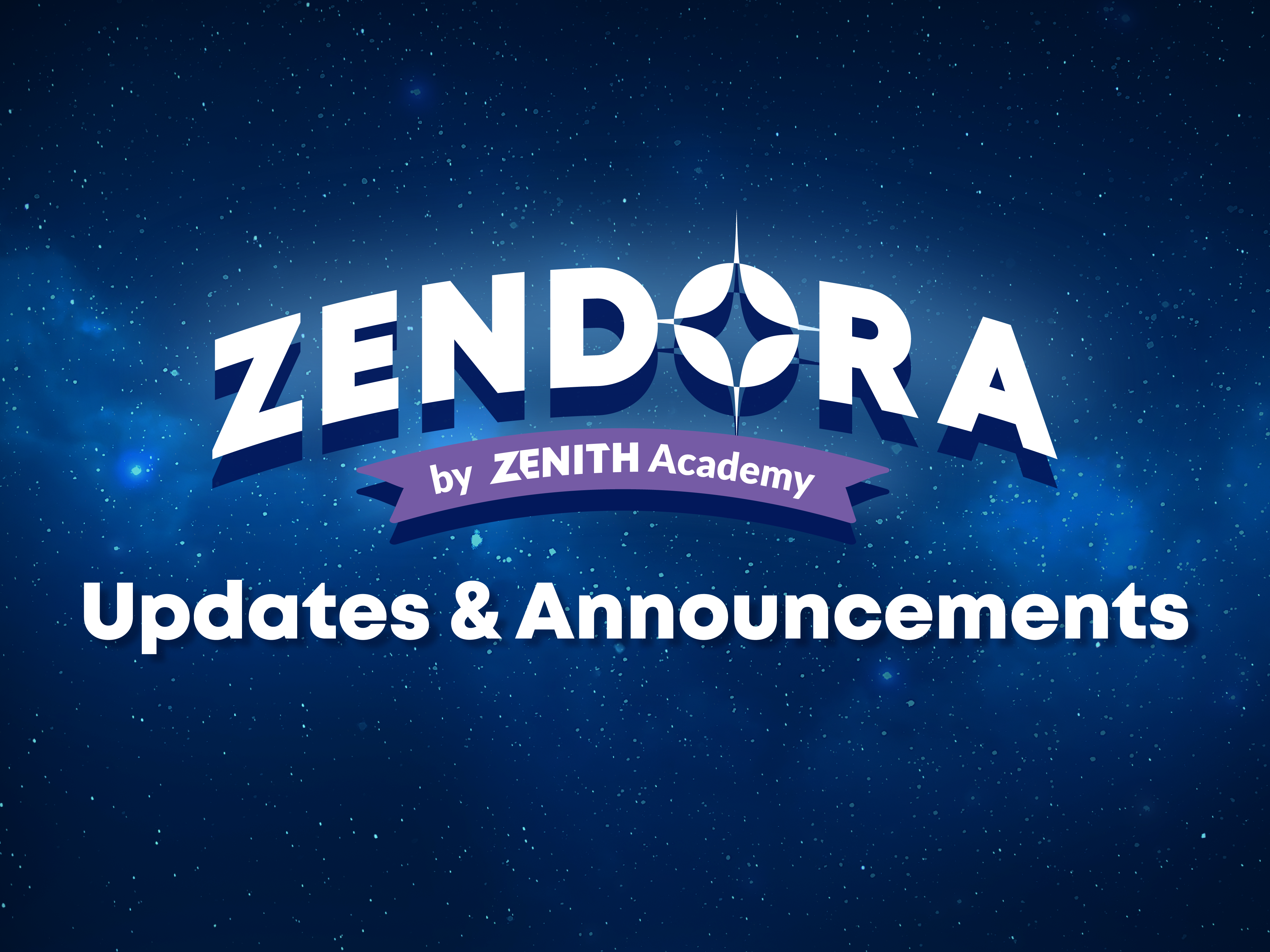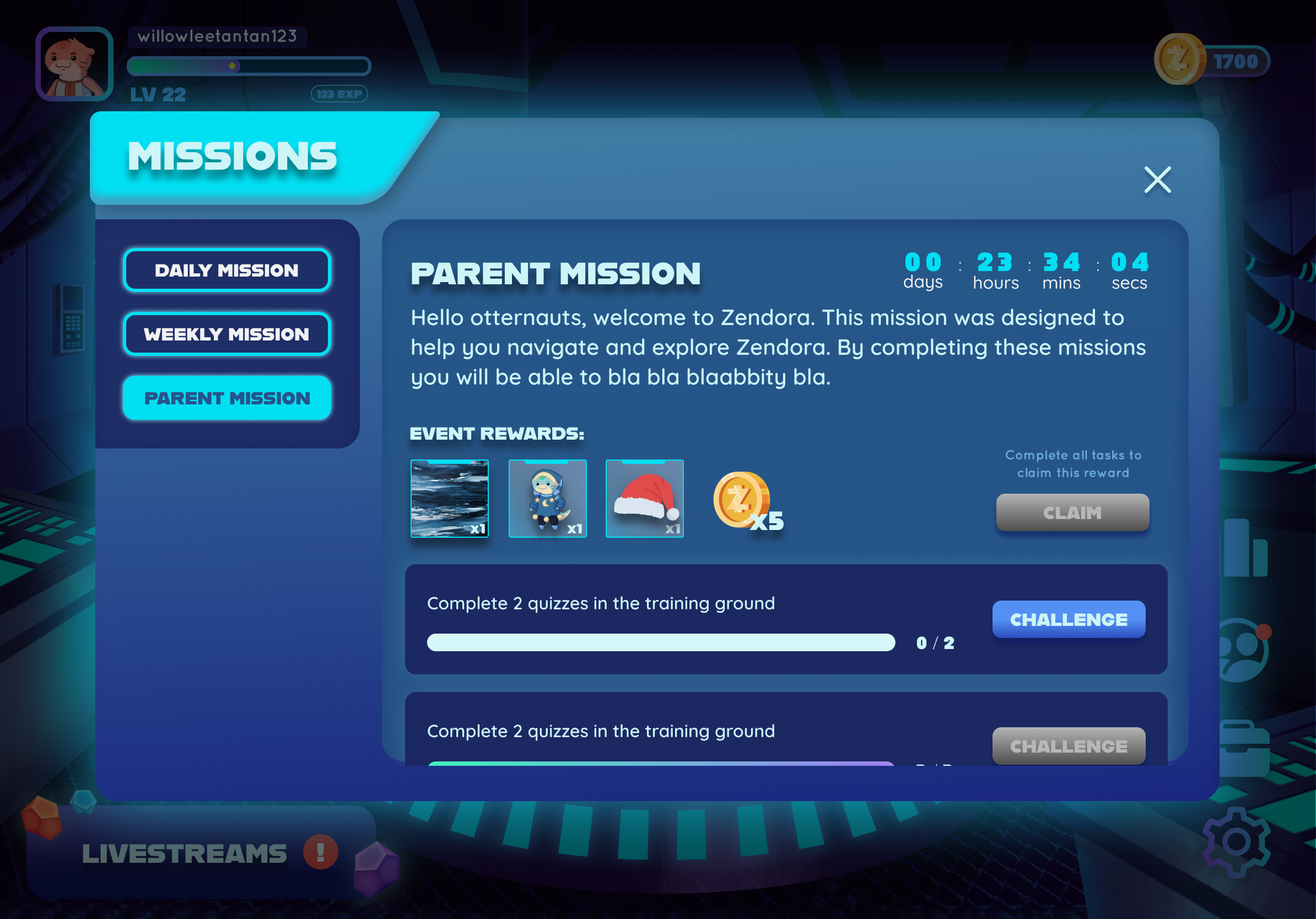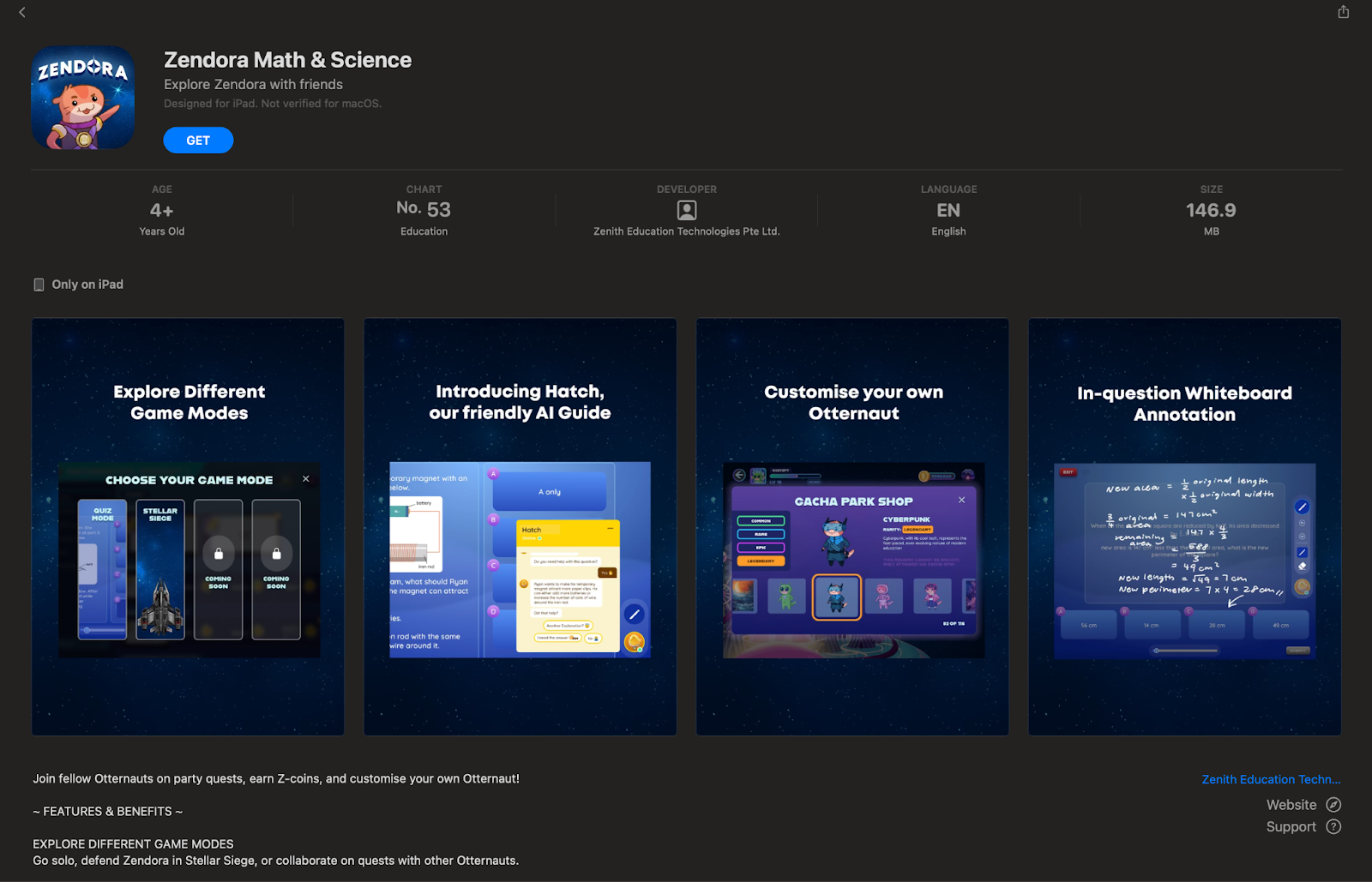Amidst the competitive backdrop of the Singapore educational system, it is no surprise that academic outcomes rank high as a priority for parents.
To create the best education product, our team set out to understand the pain points of our users (both parents and students) when it comes to achieving positive academic results, especially in the build up towards PSLE.
We started with the key lesson gleaned while building Zenith Education Studios, our hugely successful JC tuition arm (over 4,000 students join us each year), that engaging students is the key to deliver education outcomes.
In discovery interviews with Singaporean families, we often hear:
Parents: “We’ve tried different educational apps out there, but most of the time they (kids) get sick of it.”
Parents: “They (kids) always need to be nagged at to finish their homework.”
Kids: “I like my teacher because her classes are very fun and exciting.”
Kids: (when asked about why they dislike going to class) “The teacher is very boring. And the topics are very difficult.”
The single common thread emerged over time - in order for kids to learn effectively, engagement is key.
Sounds like an easy problem to solve, but making a chore less of a chore is more difficult than it sounds. Imagine getting your kids to enjoy eating vegetables - parents, you know what we’re talking about.
Our first step was to break down the problem into three smaller, more digestible parts:
1. How do we make doing homework fun?
Making homework fun is no easy feat - just ask any parent or teacher.
Solving this problem involves understanding what motivates children in this modern age of social media, instant gratification, and video games.
Students are welcome to embark on a galactic adventure in a space world known as Zendora.
Finishing their homework now has an added benefit - the ability to create digital identities in an imaginary space world.
We set out to create an imaginative world where kids can immerse into interesting narratives and endlessly express themselves through avatars - all while doing homework.
Doing homework might just become something less of a chore.
2. How do we make doing homework a habit?
In our chats with parents, we found out that getting kids to focus and develop a habit of delaying gratification (research tells us that this is a major success factor) is a huge challenge.
Singaporean parents are one of the busiest people you can imagine. Full-time work, family, and a myriad of errands and responsibilities make parent-child time extremely scarce.
Parents are active players in Zendora, issuing key missions for students to tackle.
We envision an experience where parents no longer have to nag at their kids to learn, and kids actually are motivated to constantly challenge themselves.
3. How do we make homework a collaborative process?
Learning does not take place in a silo. Parents, teachers, and peers all play a part in well-functioning classrooms.
Children are innately curious and social - it is important to make sure that Zendora is a platform that celebrates those qualities.
Digital identities are brought to life as they enable students to interact with their peers via virtual co-operative missions.
That’s a key reason why multiplayer video games like Minecraft and Roblox, and engaging edtech platforms like Duolingo are so popular amongst this generation.
Conclusion
Fast forward a couple months, these seeds grew into Zendora - the publically available iteration of Zenith Academy’s gamified learning app. Don’t just take it from us, find out for yourself!
Did you know that 1) Zendora is available on iOS and Google Play, and 2) all users in our public beta phase will be able to access our app at zero-cost until end 2024?
While acknowledging the progress that we’ve made the past months, we know that building an amazing product requires placing the user at the centre of our process.
If you are still reading this, perhaps you are a parent (with children aged 6 to 12) that sees the potential of gamified learning?
We would love to hear from you - join our pilot programme today!











